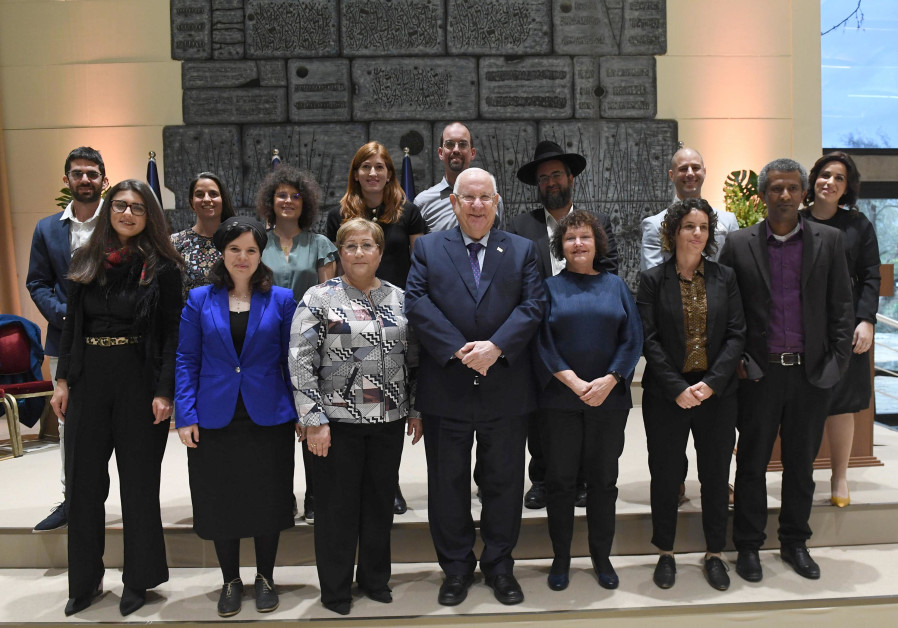Twelve doctoral students who are being mentored at various Israeli universities on Tuesday received grants of NIS 150,000 each on the basis of their theses on various research subjects. The grants were distributed at a ceremony at the President’s Residence by President Reuven Rivlin and former Jerusalem District Court judge Shulamit Dotan, who heads the bequests department at the Justice Ministry.
There are many Jews and non-Jews who make bequests to the State of Israel or leave part or all of their estates to the State of Israel.
All 12 grantees are engaged in researching subjects related to the humanities.
The funds, which are overseen by custodian-general Sigal Yaakobi, will be sent to bursars of the universities at which the grantees are studying and will cover the cost of their studies, as well as sundry expenses.
Former governor of the Bank of Israel Karnit Flug, who headed the nine-member committee that read the applications, said it was difficult to make final choices because there was so much interesting and varied material, much of which was interdisciplinary. It was particularly fascinating for her because she comes from a completely different discipline, she said.
Many of the doctoral students who submitted applications are engaged not only in research but also volunteer in their communities.
What interested Flug most in terms of the most frequent conclusions that came out of the different research projects was the desire for greater social solidarity, the need to restore public confidence in state institutions, and the extent to which public protest influences politics and the economy.























